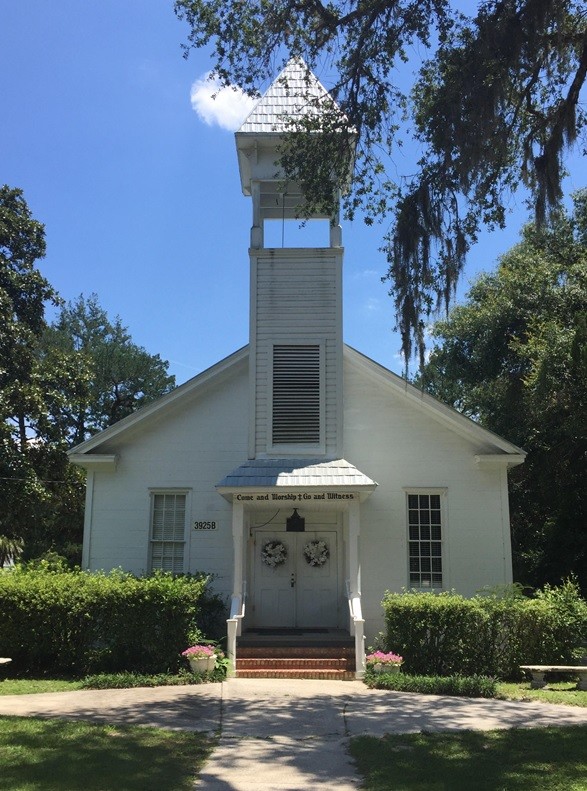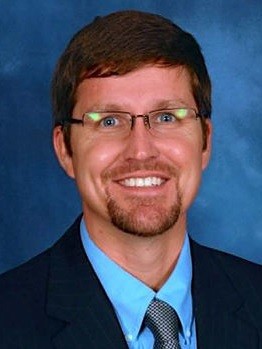Church recontextualizes the Christian message
MIDDLEBURG – One Sunday morning at Middleburg United Methodist Church, Rev. Brian Sanderson excused himself from the sanctuary in the middle of his sermon. He returned a moment later, struggling to …
This item is available in full to subscribers.
Attention subscribers
To continue reading, you will need to either log in to your subscriber account, or purchase a new subscription.
If you are a current print subscriber, you can set up a free website account and connect your subscription to it by clicking here.
If you are a digital subscriber with an active, online-only subscription then you already have an account here. Just reset your password if you've not yet logged in to your account on this new site.
Otherwise, click here to view your options for subscribing.
Please log in to continueDon't have an ID?Print subscribersIf you're a print subscriber, but do not yet have an online account, click here to create one. Non-subscribersClick here to see your options for subscribing. Single day passYou also have the option of purchasing 24 hours of access, for $1.00. Click here to purchase a single day pass. |
Church recontextualizes the Christian message

MIDDLEBURG – One Sunday morning at Middleburg United Methodist Church, Rev. Brian Sanderson excused himself from the sanctuary in the middle of his sermon. He returned a moment later, struggling to fit two suitcases in the doorway.
He managed to drag them up the stage’s steps while explaining his illustration – that people live burdened by their struggles as if by luggage instead of giving them up to God’s control.
This sort of effort to clarify Christian wisdom is typical of Sanderson. He and MUMC as a whole hope to communicate the Christian message to the modern day in Middleburg.
“I have no grand vision, nothing new that I bring to the table, other than taking what’s solid, what’s traditionally our good values – the Scripture, primarily – and finding ways to contextualize, making disciples,” he said.
And the reconciliation between tradition and modernity, between an aging congregation and a changing world, is MUMC’s main challenge.
MUMC’s roots reach down deep.
In the 1940s, members guessed that the church had been founded (as Black Creek Methodist Church) in 1823, since all records of the founding was lost in a fire in the 1890s. Before her death in 1936, a trusted matron of the church claimed that the historic white chapel that stands today was built in 1852 – again, all record of the building’s completion is lost.
Though he cherishes the church’s proud history, Rev. Sanderson’s focus lies in the present.
“Who we are and where we are going – that’s what I like,” he said. “This church loves our community. And everybody who are leaders here, who are active in ministry, they exhibit that through their heart, their passion to love others.”
MUMC reaches out into the community through its weekly Food Bridge program, in which members of the church serve a meal to the hungry in the historic chapel. It also worked greatly to help Middleburg recover from Hurricane Irma, which devastated much of Florida in September 2017, by hosting work teams and distributing money and flood buckets from the United Methodist Conference.
In addition to loving Middleburg, MUMC is focused on its ministry to young people.
According to the Pew Research Center, only 27 percent of Americans between the ages of 18 and 29 attended religious services weekly in 2014. Though troubled by a “moral decay” in U.S. culture and by young America’s decreasing participation in organized religion, Sanderson sees a unique opportunity for spreading the Bible’s teachings.
“[Many young people] don’t know the Gospel core. They don’t understand the stories we know and understand. We get to reteach it all,” he said.
But MUMC and Sanderson have a plan to reach the young.
“We gotta be real. . . we gotta show them we care. We gotta spend time. We gotta build a relationship,” he said, stopping short of pleading.
This relational perspective to evangelism manifests itself in the running of the church. “Don’t give [the members of the church’s youth program] your leftover, broken furniture. They’re not junk; don’t treat them like junk,” he said.
Sanderson finds that Christians can hinder the spread of their faith by limiting its involvement in their lives. (In fact, 24 percent of Americans sampled by the Pew Research Center for its 2014 study claimed that religion was just “somewhat important” in their lives.)
“We have to demonstrate to the world that the church is, and always has been, and always will be relevant, because we contain the greatest power on earth. We are God’s ambassadors; we are building the kingdom. But sometimes we put a fence around the kingdom we’re building instead of letting it be whoever we are wherever we are,” he said.
Sanderson finds that many people confine their faith to Sunday mornings, but he recognizes the importance of a meeting place for the Church. Sanderson recalls something that the founder of Methodism, John Wesley, once wrote in his journal: “I look on all the world as my parish.”
As Sanderson put it, “we’re not a building at all.”








